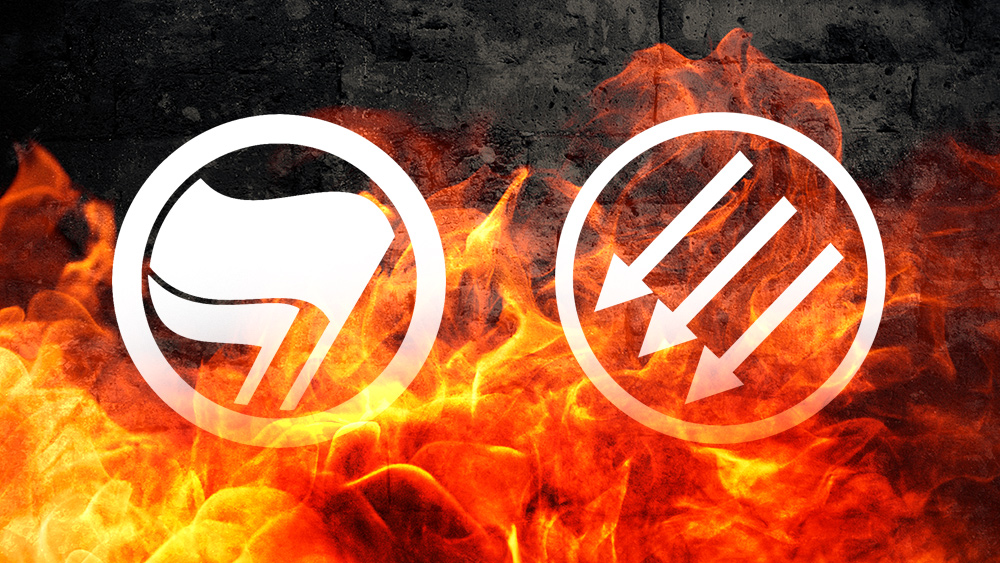
Advertisement
Anti-fascist activists, or “antifa,” increasingly mobilized in the wake of President Trump’s election, are unapologetic about what they describe as the necessary use of violence to combat authoritarianism.
(Article by Katie Bo Williams republished from TheHill.com)
While both experts on the movement and activists within it emphasize that not everyone who participates in anti-fascist activism engages in violence, they say the use of force is intrinsic to their political philosophy.
“The justification [of the use of violence] is that Nazi ideology at its very core is founded on violence and on wielding power by any means,” said Mike Isaacson, one of the founders of Smash Racism D.C., an antifa organization in Washington.
Isaacson is unequivocal in his defense of violence as a legitimate tool to combat the creeping threat of what he deems authoritarianism.
“There is the question of whether these people should feel safe organizing as Nazis in public, and I don’t think they should,” said Isaacson.
“I don’t think anyone should think that someone who is intent on politically organizing for the sake of creating a state-sponsored genocide — I don’t think is something that we should protect,” he said.
Antifa activists justify their use of violence as self-defense against “the inherent danger of fascists organizing,” according to Mark Bray, a Dartmouth historian and author of a recent book on the movement.
“The argument is that it needs to be stopped immediately, because if you let it grow, that poses a danger to society,” Bray said.

Dubbed the “alt-left” by President Trump, antifa has increasingly been making their presence known after his victory in the 2016 election was openly embraced by white supremacists.
On Sunday, antifa protesters hurled glass bottles and bricks at police officers monitoring a far-right march in Portland, Ore.
And the University of California, Berkeley, is bracing for the possibility of more violent clashes on Thursday, when conservative political commentator and former Breitbart editor Ben Shapiro is scheduled to speak.
There is no central organizing committee governing antifa, and different affiliated groups have different priorities and governing principles, making it impossible to gauge the growth of the movement in the wake of the election.
But activists and law enforcement sources say anecdotally that their numbers have almost certainly swelled. Jim Pasco, executive director of the Fraternal Order of Police, the nation’s largest law enforcement union, told The Hill that he has “for sure” seen rising interest in the movement since Trump’s election, noting that six months ago he had never even heard of antifa.
As early as 2016, the Department of Homeland Security and the FBI warned state and local officials that antifa had become increasingly confrontational and were engaging in “domestic terrorist violence.”
While Bray says antifa focuses mostly on nonviolent activities, such as researching white supremacists and disrupting their efforts to organize, the movement’s more violent methods — and its use of so-called black bloc tactics, where activists wear black masks and clothing to conceal their identity — have drawn fierce criticism from the right and divided the left.
House Minority Leader Nancy Pelosi (D-Calif.), for example, has condemned antifa’s use of violence.
Liberal activist Cornel West, in contrast, said that antifa activists saved him and other counterprotesters in Charlottesville, Va., from “being crushed like cockroaches” by “alt-right” demonstrators.
Read more at: TheHill.com
Submit a correction >>
This article may contain statements that reflect the opinion of the author
Advertisement
Advertisements















